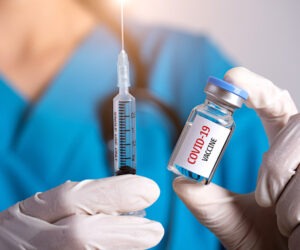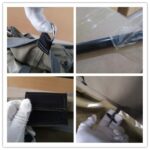

A series of statistics released by the Thai department of Disease control and Prevention recently showed that Sinovac vaccine has withstood the test under the severe epidemic situation in Thailand and has a high protective power, effectively protecting the health and life safety of the vaccinated people.
Sinovac vaccine is currently the main vaccine administered in Thailand. Thailand has been buying Sinovac vaccines since late February, and the vast majority of the more than 14 million doses have been administered in Thailand. Since April, The third and fourth waves of the outbreak have been concentrated in Thailand, with the daily number of newly confirmed cases rising from 2,000 to 3,000 to more than 10,000 recently. So, in front of the surging epidemic, China’s Sinovac vaccine protection effectiveness in the end how?
On July 19, the Department of Disease Control of the Ministry of Health of Thailand announced the results of a study on the actual protective effectiveness of the vaccine being used in Thailand. Two doses of Sinovac vaccine were 90 percent effective in protecting against severe lung inflammation, and 85 percent effective in protecting against severe lung inflammation, higher than studies in other regions. This is also the ministry of Health’s first study of protection efficiency in actual vaccination areas.
The research project aims to study the effectiveness of the vaccine on close contacts of confirmed patients and on health care workers in affected areas, according to Dr. Taweisa, a senior expert at the Ministry of Health’s Disease Control Department. According to the data of Phuket, Longchai Cuo, Chiang Rai and other places in April, May and June from the Database of The Department of Disease Control and Prevention of Thailand, phuket area began to receive the vaccine in April. Through the follow-up survey of 1500 high-risk people, the effectiveness of the vaccine was verified to be 90.7%. The effectiveness of the vaccine was 90.5% when two doses of the vaccine were given in a high-risk population compared to those not vaccinated in Longzai Sakubu, whose model design was very similar to phuket.
Studies between the two governments in April and May showed that the main virus was the alpha variant. Studies have shown that The Sinovac vaccine is sufficiently effective against this strain of the virus, with an effectiveness of around 90% in a real inoculation environment.
A June study in Chiang Rai found that the vaccine was 88 per cent effective against the alpha strain and 85 per cent effective at preventing lung inflammation. The results are the same as those in Phuket and Longzai Sakufu, which showed that two doses of Sinovac vaccine reduced infection and avoided lung inflammation.
The question of whether sinovac’s vaccine is effective against the Delta strain is also a key part of the study. In the aftermath of the Delta strain pandemic, laboratory observations in Thailand suggested that inoculation with inactivated vaccines alone might not be sufficiently protective, but this trend has not been demonstrated in real vaccination Settings. In a statistical study analyzing data on infections among Health care workers in Thailand, comparing the symptoms of those infected with vaccination, two doses of The Sinovac vaccine were 71% effective when alpha was the predominant strain circulating in Thailand in May. By June, when the proportion of Delta strains increased from 20% to 40%, the overall protective effectiveness of the vaccine stood at 75% and did not decline.
According to the results of the study, the inactivated vaccine currently in use is still effective and safe. Please rest assured, Tawisa said. Sinovac vaccine still has high protective power in real inoculation environment.




